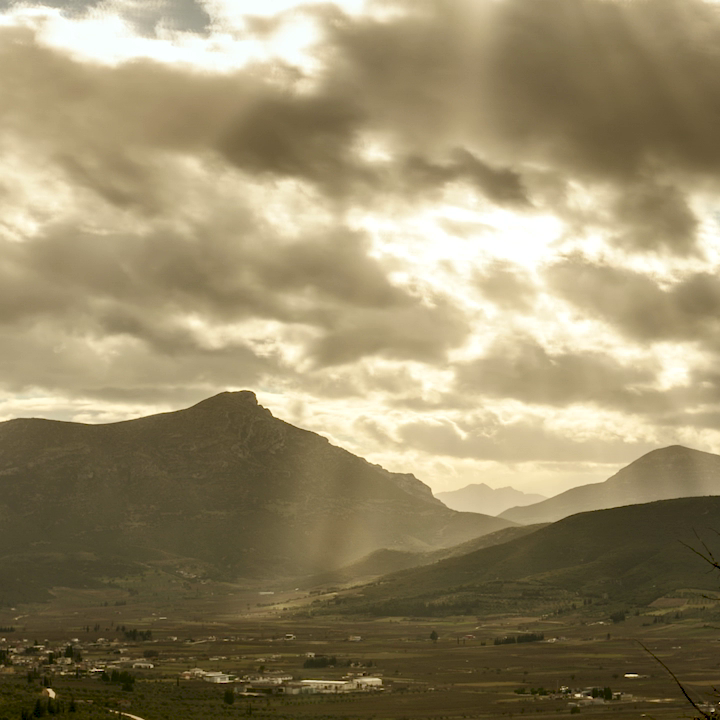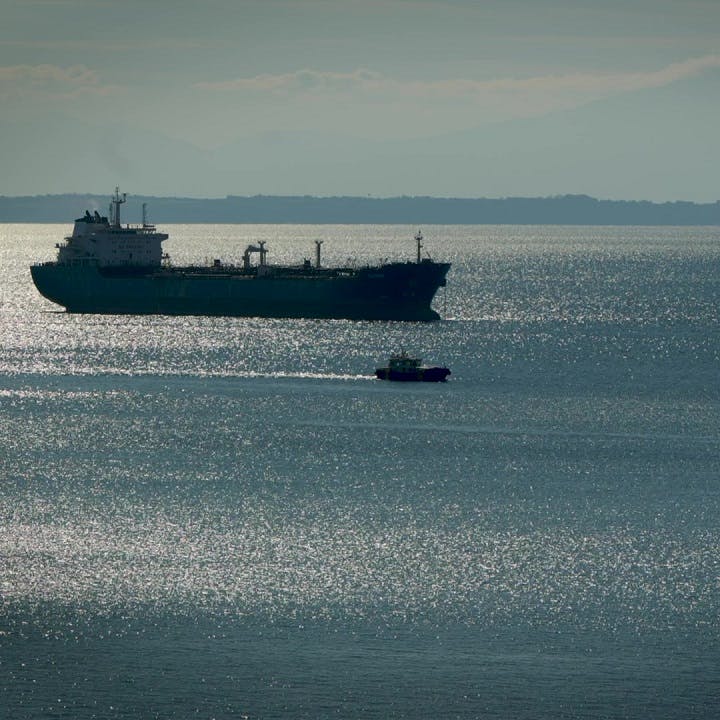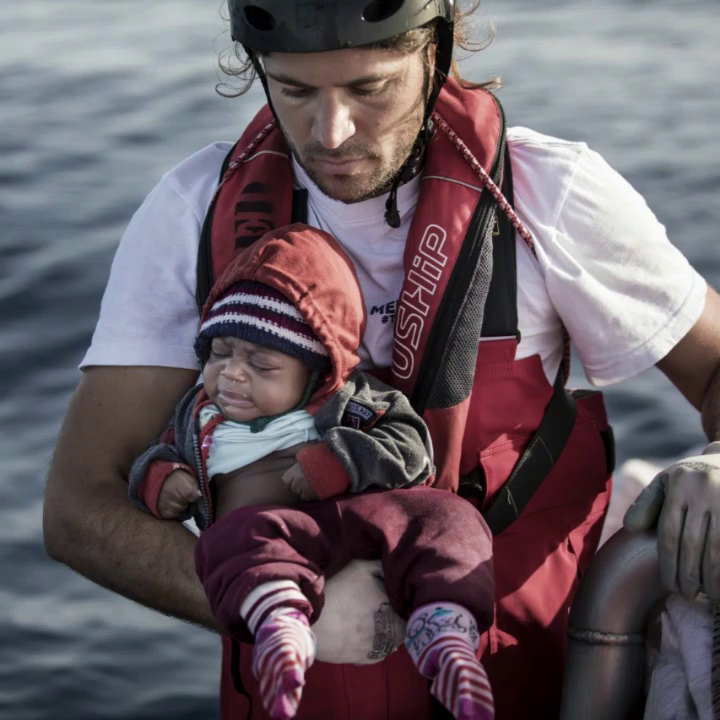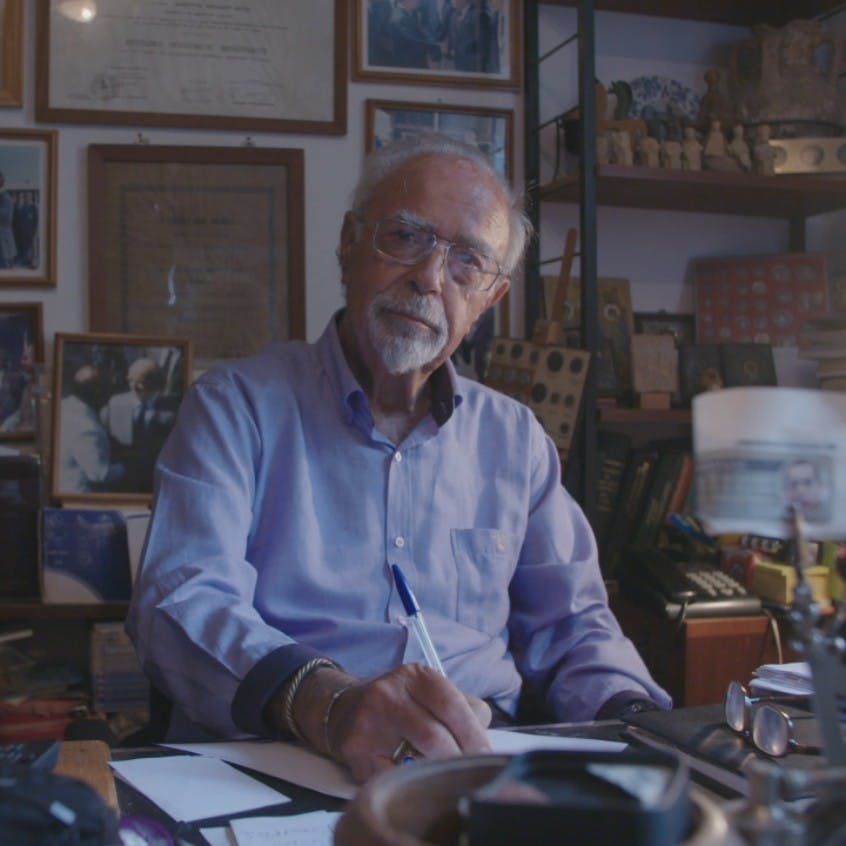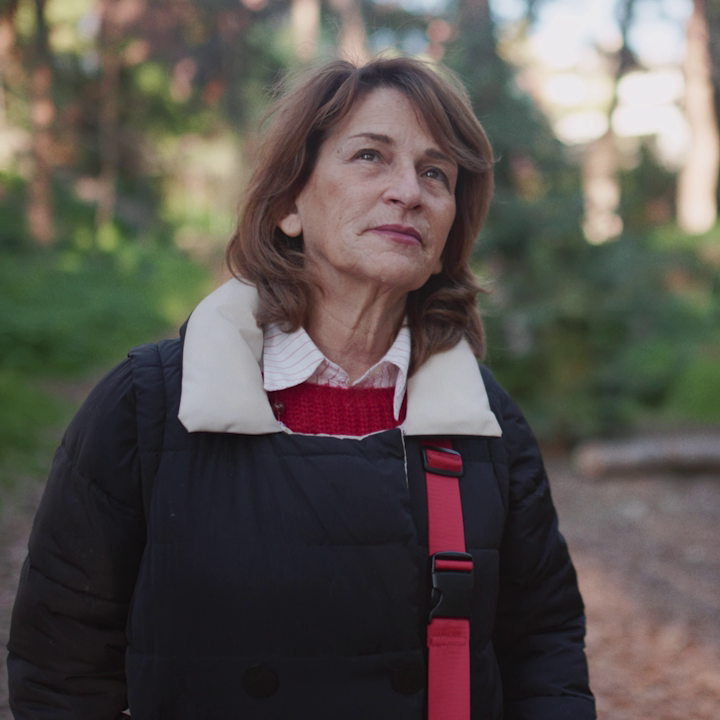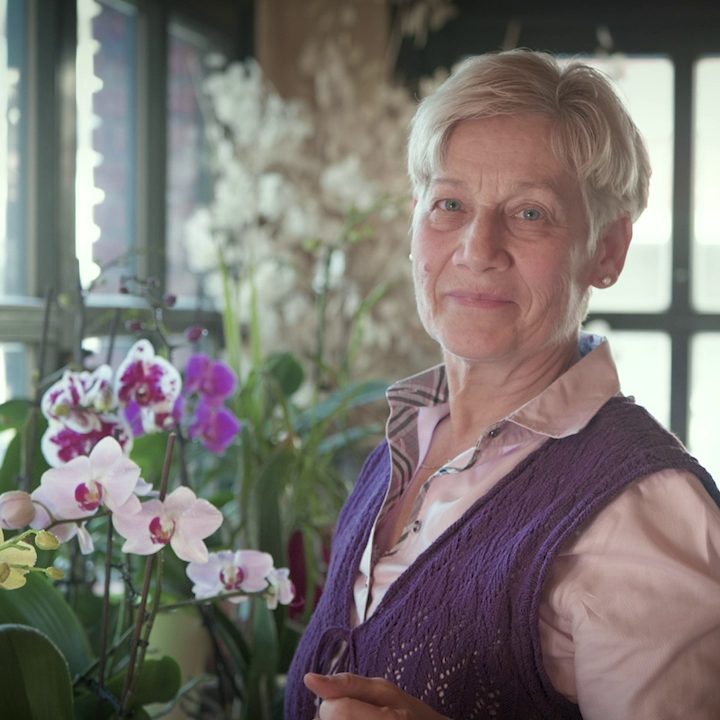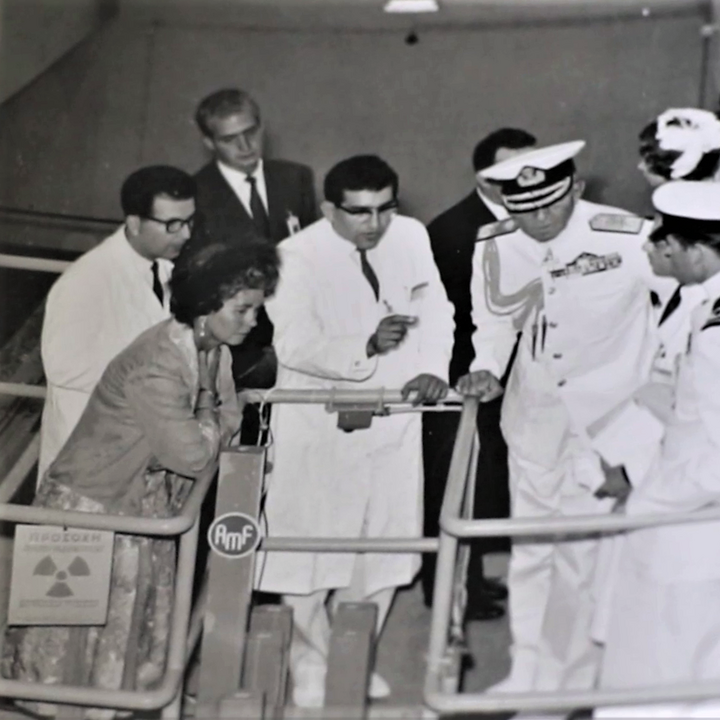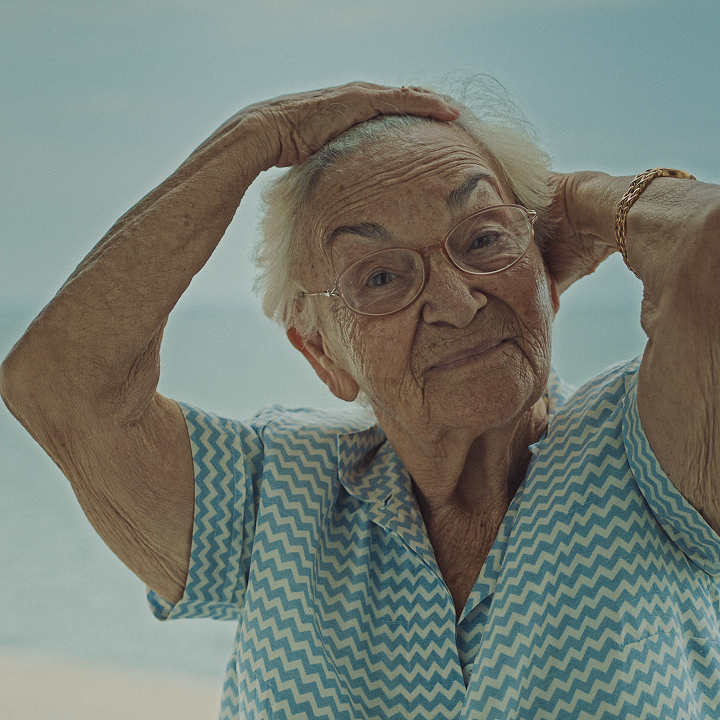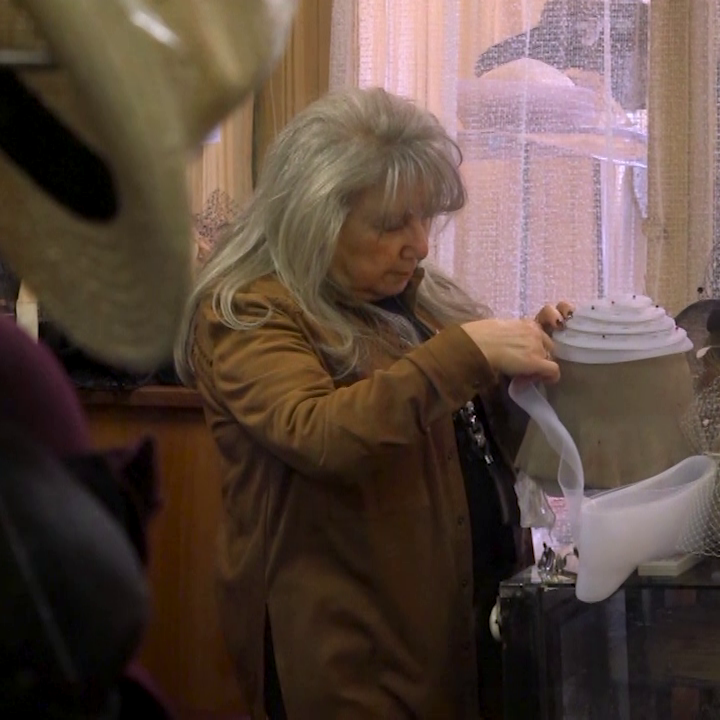Heading down the shore and going into my father’s shop, when I was about twelve years old, the first thing I felt was like I had gone to a different country. I left behind the small harbour, which smelled like boiled pine, smelled like tar from the sea... The workshop inside smelled like sugar, in fact, like burned sugar, because the fires burned wood. The sugar fell onto it and left off a unique smell.
There on the wood, which they added to the fire and was burning, they threw the ingredients into the copper cauldron: water, sugar, starch, and a little citric acid. We stirred it with a big wooden spoon for half an hour, increasing and lowering the heat. The Turkish delight, loukoumi was ready when it reached a rolling boil. They used the spoon to take out a little Turkish delight and put it between their fingers: the index finger and thumb. They pinched a small amount of the boiled Turkish delight between them. And from that, you can tell if the Turkish delight is ready or not. Until I got used to it when I grew up, I got burned every day, every single day.
In the second class of middle school, something really bad happened to my family, my mother got seriously ill. After me, I had two brothers, Kostas and Achilleas, who were two and four years younger than me. Something had to be done. It couldn’t go on like this. And, just like that, I had to stop going to school. When September came, and I said, ‘Mum, I have to go to the school. We have to go, and you have to take me to register, because all my schoolmates have gone’, she said to me, ‘Dina, you’re not going to go, we can’t let you’.
That was a serious blow for me. On the first day, when they do the blessing – I remember it like a dream – I ran there and went to the blessing. And when it finished and they went into their classes, they didn’t let me in. They told me, ‘You can’t come in Dina, because you haven’t been registered’. I cried and went to the jetty, which was far away. And I cried. I definitely made the sea saltier with my tears, because I couldn’t stop. I couldn’t accept that I wasn’t going to school.
I tried to find an outlet for my feelings, and, strangely, I found it in Turkish delight. Why? Because I discovered that I liked making it. Over time, I began to add the ingredients, to go to the workbench, and then to do other jobs as I grew. Of course, I couldn’t lift the cauldrons off the fire, but I could eventually do that, too. It was a wonderful moment when the scent was added to the Turkish delight as it boiled, just before it was taken off the fire. How the whole workshop, and the whole shop, smelled. The whole shore smelled like that then. Whatever was involved in making Turkish delight was nearby. The Turkish delight workshops, the canning factories, the printers, were all in around one or two streets.
While I was stirring the Turkish delight, I wasn’t thinking, ‘Great, I’ll finish with the Turkish delight, and then I have to go home to cook or do something else that has to be done so we’re ready for tomorrow’. I was thinking, ‘It would be lovely to write a nice composition’. And so, I went to the Catholic nuns and began to learn French. For me, this was an outlet, because they would come and get me: every morning, I tried to go back to my school, and every morning my parents came to take me away – at first, I went every day. The teachers couldn’t handle it. After I was forced to leave, I went and cried and then returned to the shop.
What also saved me was that my father… For all the years in the shop, they would regularly come round with a little cart that was fully loaded with books, which they would take to all the Turkish delight producers. They said to my father, ‘Sykoutris, do you want some books to burn? What about you? You? You? You?’. The shore was full of them. People were emptying the old houses with their wonderful libraries – unique editions – and taking the books down and burning them; they used them as kindling. My father refused to burn any of them. He took them. He took them up to the loft in the shop and put them in crates we used for the Turkish delight, the wooden ones, and put a lid on them. I got into books very quickly.
All us children of the Turkish delight producers, all these children, in the afternoon, especially in summer, having been stuck inside with the cauldrons boiling and the sun outside burning the stone, as soon as we took off the cauldrons, we left as we were and ran to the sea. And we all jumped in and swam. And then, this is the sensation I felt, the sea was sweetened by the sugar that we had been covered in when we dived in. Very often, when we jumped in, with our hair white from the sugar, you moved a little and the sea around you turned slightly creamy white. Of course, it disappeared immediately. And I would say that the sea turned sweet at that moment. It was strange. A swim, a little rest, and all the sadness went out of my head, all of it.
I have the feeling that this sugar was magic, it didn’t let your mind wander far from it.
I made the important decision in 1969, when the first man walked on the moon. I said, ‘I’m going to leave in September’. I told my father while we were on a bus, just as we heard on a small transistor radio that man had walked on the moon. Was it a sign? I don’t know! I told him, and then we got off the bus and told my mum, but I had already arranged things with the nuns who taught me French well before that. They had the Leonteios School at 2B Sina Street in Athens, which they ran as an orphanage. I had arranged to go there before telling my parents, because I wanted to prepare what I would say. Like when I made Turkish delight, I wanted to do it properly.
I left Syros on the Oia on 1 September 1969. I went to Athens on my own. On 16 June 1974, I took my last exam, which was ancient Greek, to get my certificate, my high school leaving certificate. And on 30 June 1974, I got married. Both my children really love Turkish delight. Now Angeliki works with Turkish delight here.
But I didn’t forget my dream of going to university. In 2004, I won a place in the draw for the Greek Open University. Thirty years later. I finished university, and the most wonderful thing for me, the most moving thing, was that I finished university at the same time as my daughter. We went to Patras to take the oath, because the Open University is run from there, and they called out, ‘Angeliki Andreiomenou’, my daughter. And she went up to collect her degree. And then I heard the rector say, ‘Andreiomenou Konstantina’, and he did a double take. He said, ‘Twice?’ And he turned and looked out. I raised my hand and said, ‘Here! The mother’. It was a very emotional moment. I felt like I was a young student finishing. Here, inside, I felt young, vindicated, that my wish had come true. But that conflicted with my exterior. I mean, with what I really was. I was a grandmother. I had my grandchildren and my daughter.
I’m not going to lie; an image came to my mind that always comes to me and will do for the rest of my life. Me, outside the door of our shop on the shore, outside the Turkish delight factory. I’m outside the door looking at the ships and feeling as I felt then, before I left for night school in Athens. And I would say, ‘Some ship is going to take me away, I’m not meant to stay here’. When I was stirring the Turkish delight – properly – for half an hour continuously and for years on end, I had the feeling that every movement I made was like watching a wave break. For me, everything that moved in water, in sugar, in Turkish delight, was something that carried me away. And when the fire died, and I went out and saw the sea... I think the sea saved me. The sea and the Turkish delight, loukoumi.


